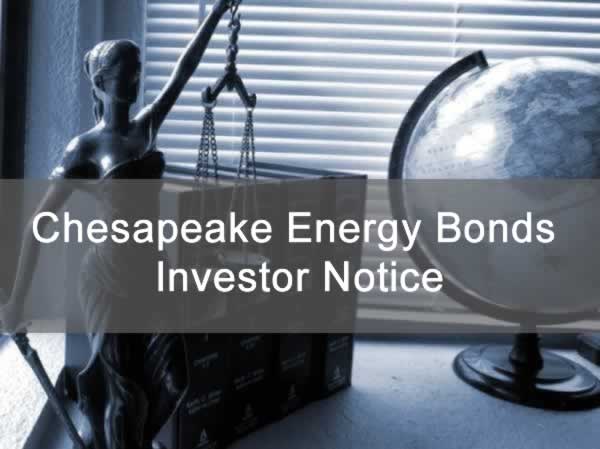There have been rumors swirling regarding Chesapeake Energy Corp. (CHK) preparing a potential Chapter 11 bankruptcy filing. Most recently, those rumors have now more recently included a possible missed interest payment to bondholders on at least one tranche of CHK bonds. There is approximately $9 billion in outstanding CHK 2021 unsecured notes, and a bond interest payment is due on June 15. The rumors include whether the interest payment will be skipped altogether, or if a grace period will be invoked while discussions with creditor groups and lenders continue.
A bankruptcy typically wipes out existing stock shareholders, and while bondholders are typically ahead of stock shareholders in terms of corporate liquidation structure, a bankruptcy is still not good news for unsecured bond or noteholders.
While the bond prices have reflected the negative rumors and news, some investors (especially those invested in bonds or notes) may choose to hold on in the hopes that the principal invested will one day be re-paid in full. For other investors, the risk may have been too much to bear and they likely made a previous decision to liquidate their positions and take their losses.
Chesapeake Energy was not in a strong financial position before 2020 as it was burdened by substantial debt levels.
These issues were all in existence pre-Covid-19, and the volatile markets along with the decline and volatility in the price of oil only exacerbated a number of pre-existing problems in the first and into the 2nd quarter of 2020. Cost-cutting efforts and layoffs do not appear to be enough to overcome these obstacles.
Seek Compensation for Your Chesapeake Energy Investment Losses!
If you are an investor or have a loved one who has suffered losses in Chesapeake Energy CHK bonds that were recommended by a financial advisor you should consider your options for recovering your security or investment losses.
At least one option for some investors includes a FINRA customer dispute. The customer dispute process at FINRA is a private arbitration claim that is a process much faster and more efficient than court litigation.
There are no depositions, as it is mostly paper-based discovery. You should contact experienced attorneys who might be able to assist you with these types of disputes.
Broker-dealer firms making recommendations of investments such as Chesapeake bonds have duties and responsibilities that typically include conducting a thorough research and due diligence on these products before offering them to public investors and then have further duties and responsibilities to only make suitable and appropriate investment recommendations. Some broker-dealer firms may have not properly and adequately supervised the recommendations and sales practices related to these investment transactions. A number of broker-dealer firms have certain internal review parameters regarding high yield bonds (commonly referred to as junk bonds) and concentration levels, among other review triggers.
An additional note for senior, elderly and retired investors who purchased risky high yield bond investments. High yield or junk bond investments are not always appropriate for investors who may need liquidity and who (based on their age or circumstances) are not appropriate types of investments. If you have questions as to whether the type of investments or the amount of a concentrated position in these or similar investments may have been mis-sold at the sales practice level or otherwise negligently supervised, you should consult an experienced attorney.
We help investors nationwide recover losses. The law firm has offices in Florida, New York, Arizona, Texas, and North Carolina. The two founding partners have nearly 45 years of legal experience. Please call us today at 1-800-856-3352 for a free case review.


